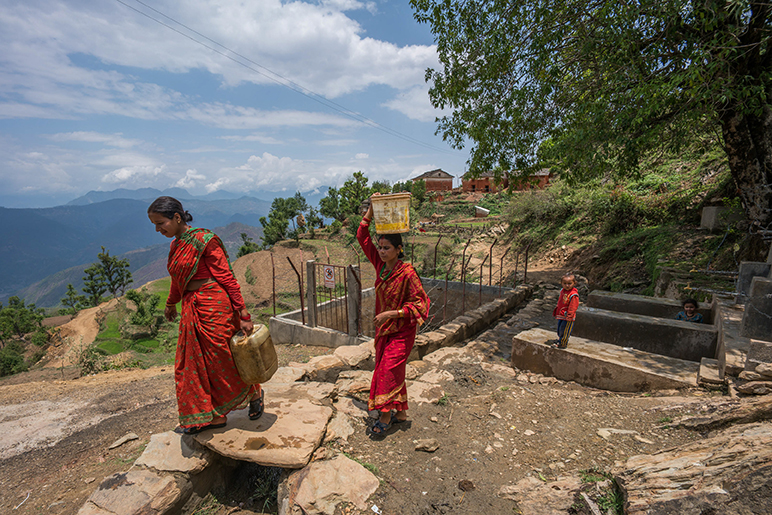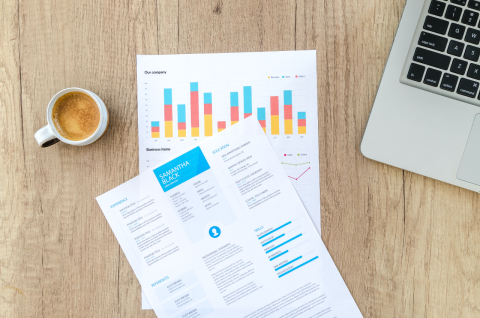This country page is supported by Netherlands Enterprise Agency (RVO).
Resources:
- Inspired by Nature-based Actions and Solutions
- Nature-oriented river management
- J-traditional river engineering as a nature-based solution
- SHIMADZU water and environment quality

An independent institute for applied research in water, Deltares works on smart solutions, innovations, and applications for people, the environment, and society. With a focus on future deltas, sustainable deltas, safe deltas, and resilient infrastructure in contributing to international agendas, Deltares works closely with governments, businesses, other research institutes, universities, and nongovernment organizations.

IHE Delft Institute for Water Education—the world’s largest international graduate water education facility—aims to create ground-level impact by developing problem-responsive research and knowledge. The Institute works to strengthen the knowledge and capacity base of ministries and water sector organizations in the Asia and Pacific by implementing on-the-job training for water professionals, creating water education networks, implementing joint research, providing policy advice and e-learning, and participating in innovative projects.

The Netherlands Enterprise Agency (RVO) is a government institution designed to help entrepreneurs and organizations to invest, develop, and expand their businesses and projects in the Netherlands and around the world, aligning with the Netherlands government economic affairs and climate policies. RVO assists nongovernment organizations, knowledge institutes, policy makers, and other organizations by sharing knowledge, developing collaborations, and providing funding and networks.

The Netherlands is a low-lying country, where about 27% of land is located below mean sea level and 55% is prone to flooding. Innovative and flexible design approaches have been developed to protect people, nature, and the economy in such a vulnerable delta from risks such as flooding, droughts, erosion, salinity intrusion, and climate change. Dutch organizations, companies, and institutions bring a wealth of learning and tools applicable for building resilient and flexible water management in the Asia and Pacific context.
The Government of the Netherlands has been supporting water resilience initiatives in the Asia and the Pacific in
collaboration with ADB since 2006. Through the Netherlands Trust Fund, the government has been the biggest contributor to ADB’s Water Financing Partnership Facility—accounting for 34% of total committed contributions to date from financing partners. The Facility strengthens water and sanitation development outcomes across Asia and the Pacific. It has catalyzed more than $9.5 billion in innovative and sustainable water investment to benefit 122 million people in the region.
Cooperating partners also support adaptation outcomes in the water sector that contribute to enhancing water resilience in Asia and the Pacific. The Netherlands Water Partnership, a network of Dutch water organizations working worldwide, has collaborated with ADB since 2012 to convene the annual Asia-Netherlands Learning Week—focused on exchanging knowledge and developing networks to meet water challenges in the region.

Building with Nature: Building with Nature is nature-based solutions design approach that focuses on embedding natural processes in hydraulic engineering while taking the natural, social, and economic systems into account. The approach harnesses natural dynamics, with ecosystems and natural processes, to provide resilient solutions that reduce the impact of climate change and benefit society, the environment, and the economy. The approach results in flexible, resilient, multi-functional, innovative designs tailored to the local context—and adaptable to changing conditions such as rising sea levels. Learn more: www.dutchwatersector.com/news/building-with-nature l https://www.ecoshape.org/en/

Dynamic Adaptive Policy Pathways: The Dynamic Adaptive Policy Pathways approach supports decision making by enabling the development of an adaptive plan able to deal with conditions of deep uncertainty, such as the effects of climate change. The plan specifies actions to prepare for the near future and to adapt if needed and involves a monitoring system for early warning signals. The approach uses adaptation pathways, which provide insight into policy options over time to achieve predetermined objectives, as well as adaptation tipping points, which make it easy to adapt plans in response to emerging climate scenarios. Learn more: www.deltares.nl/en/adaptive-pathways